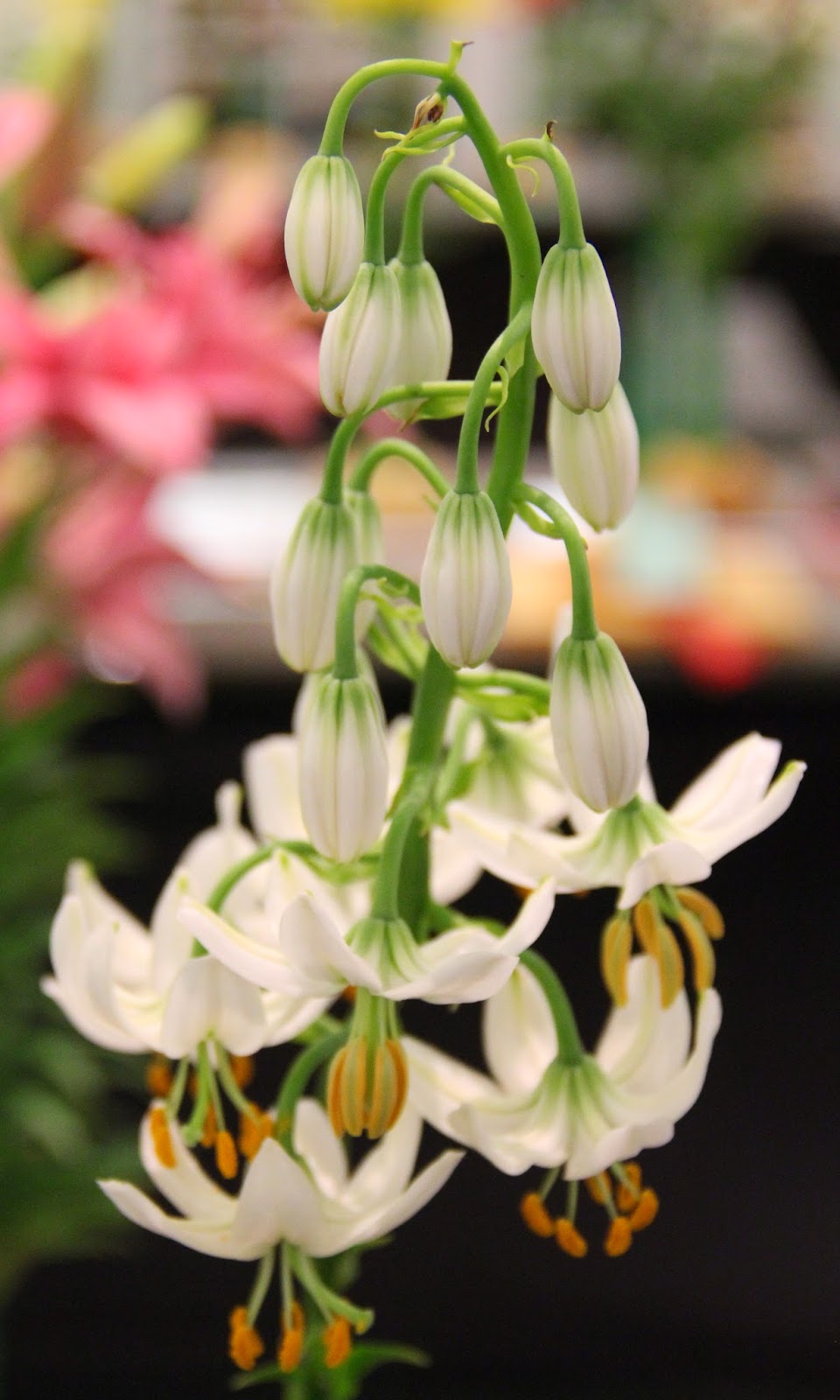Martagon lilies are a Eurasian group of the genus
Lilium comprised of five species: L.
martagon, L. hansonii, L.
tsingtauense, L. medeoloides, and L. distichum and their hybrids.
Martagons have the largest geographic distribution of any
division of the genus Lilium, the five species are closest in “kin” (chromosomal)
than any other group of species.
They are only found in the Northern hemisphere in
environments characterized by cold winters and short summers. Generally they
thrive in deciduous forests, in alpine conditions just above the tree-line and
in the alluvial soils of river systems.
 |
| From the garden |
Highly adaptive plants these lilies present a marvelous
natural geometry, emerging from warming soils as spherical domes the foliage
emerges as rosettes of whorled leaves elongating into ascending towers topped
with nodding buds which unfold into a symmetrical candelabra of down-facing
(turk’s cap) flowers.
I have written about martagons in past postings as
great shade garden companions for cold climates. All parts of martagon lilies
are of great beauty.
It was a very good year for martagon
lilies. They were gorgeous in my garden, the bloom season weather was fine, flowering
lasted for weeks. I also photographed an NALS, North America Lily Society (www.lilies.org) show sponsored by the North Star Lily Society, (www.northstarlilysociety.com)
in Bloomington MN. The show displayed over 100 martagon spikes, many seedlings,
mostly from Canada.
 Earlier in March I attended a talk
Martagons: The Toughest Lilies of Them All” by Dr. Ieuan Evans. It was informative to hear
of his method of breeding. (See the NSLS site) I have used the process outlined by E. Eugene Fox in
his book Martagon Lilies which was available through NALS. I used this
process for myself and Hartle-Gilman who sold through Faraway Flowers. Today;
Doc Gilman has passed away, Jan Hartle had a stroke and Faraway Flowers has
discontinued business. The current owners of Hartle-Gilman have sold bulbs
through master gardener plant fairs throughout Minnesota and wholesale to NSLS.
At one time this collection was one of the largest in North America.
Earlier in March I attended a talk
Martagons: The Toughest Lilies of Them All” by Dr. Ieuan Evans. It was informative to hear
of his method of breeding. (See the NSLS site) I have used the process outlined by E. Eugene Fox in
his book Martagon Lilies which was available through NALS. I used this
process for myself and Hartle-Gilman who sold through Faraway Flowers. Today;
Doc Gilman has passed away, Jan Hartle had a stroke and Faraway Flowers has
discontinued business. The current owners of Hartle-Gilman have sold bulbs
through master gardener plant fairs throughout Minnesota and wholesale to NSLS.
At one time this collection was one of the largest in North America.
Photos from the show, most are unnamed seedlings.









